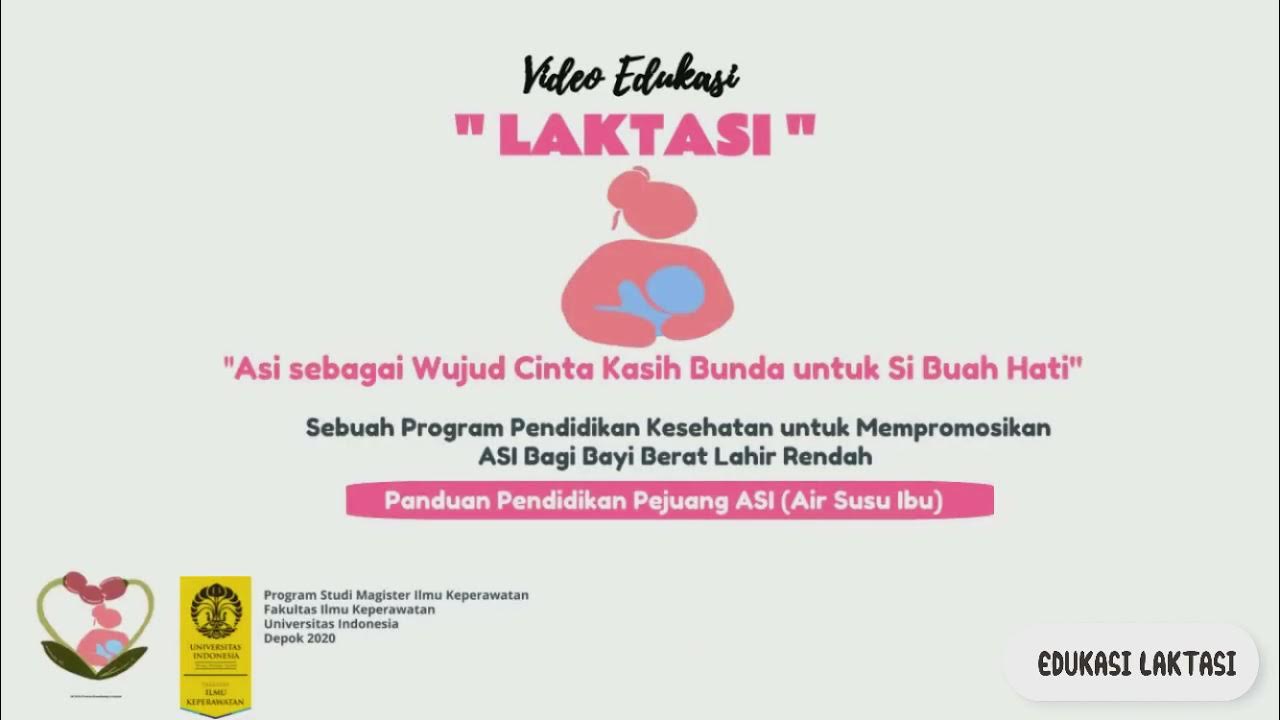Breastfeeding
Summary
TLDRBreast milk is a remarkable natural source of nutrition, offering numerous benefits for both infants and mothers. It reduces risks for babies, such as allergies, infections, and obesity, while promoting healthy development. For mothers, breastfeeding lowers the risk of certain cancers and health conditions. The process of milk production is complex, beginning during pregnancy and involving key hormones like prolactin and oxytocin. While breastfeeding can be challenging, its rewards are significant. However, not all mothers can or choose to breastfeed, and formula can be a healthy alternative. The most important factor is the well-being of both mother and baby.
Takeaways
- 😀 Breast milk provides essential nutrients for a baby's first six months, offering various health benefits like reduced risks of allergies, infections, obesity, and sudden infant death.
- 😀 Breastfeeding also benefits mothers by reducing uterine bleeding, burning calories, and lowering the risk of breast, ovarian, and uterine cancers, osteoporosis, heart disease, and type 2 diabetes.
- 😀 Breastfeeding helps mothers and babies bond from the start, particularly through skin-to-skin contact immediately after birth.
- 😀 During pregnancy, breast tissue prepares for milk production through hormonal changes, including increased prolactin and progesterone levels.
- 😀 After delivery, prolactin and oxytocin work together to stimulate milk production and milk letdown, allowing the baby to feed effectively.
- 😀 Colostrum, the first milk produced, is rich in antibodies and immune cells but low in fat, offering significant protection for the newborn.
- 😀 Milk production increases after birth, with the fat content of milk rising as the baby feeds, providing essential nutrition for growth.
- 😀 The baby’s suckling triggers a reflex in the mother that stimulates milk production and helps release milk from the breasts.
- 😀 A proper latch is crucial for breastfeeding success, preventing nipple pain and ensuring the baby gets enough milk.
- 😀 Factors like stress, medications, dehydration, and formula introduction can affect milk supply, so frequent breastfeeding is key to maintaining supply.
- 😀 Breastfeeding may not be suitable for everyone due to health issues, medications, or substance use, but formula feeding is a healthy alternative if needed.
Q & A
What are the key benefits of breastfeeding for babies?
-Breastfeeding offers numerous benefits for babies, including lower rates of allergies, ear and lung infections, obesity, sudden infant death syndrome, healthier weight gain, and improved long-term health outcomes.
How does breastfeeding benefit mothers?
-Breastfeeding helps mothers by reducing the risks of uterine bleeding, burning calories, and lowering the chances of developing breast, ovarian, and uterine cancer, as well as osteoporosis, arthritis, type 2 diabetes, and heart disease.
What is colostrum and why is it important?
-Colostrum is the yellowish fluid produced in the first few days after childbirth. It is rich in immune cells and antibodies, offering critical protection to the baby and helping the baby pass the first stool, called meconium.
What happens to milk composition during a feeding session?
-At the start of a feeding, milk is lower in fat, but as the baby continues to suckle, the fat content increases. This is because fat globules in the milk are swept into the lactiferous ducts as the milk flow increases.
What hormones are involved in milk production and letdown?
-Prolactin stimulates milk production, while oxytocin triggers the contraction of myoepithelial cells, causing the milk to be pushed into the ducts, a process called milk letdown. Both hormones are essential for successful breastfeeding.
Why is frequent breastfeeding important for establishing milk supply?
-Frequent breastfeeding is crucial because it helps fully empty the breasts, stimulating the glandular tissue to produce more milk, thereby establishing a stable and long-term milk supply.
What should mothers do if they experience nipple soreness or cracking?
-Mothers experiencing nipple soreness or cracking should ensure proper latch and positioning during breastfeeding. Treatment with topical creams or ointments can also help, and continued breastfeeding is essential to alleviate the issue.
How does maternal diet affect breast milk?
-A healthy and balanced diet is sufficient for producing high-quality breast milk. Although certain foods may alter the flavor of milk, there are no specific foods that need to be avoided while breastfeeding, except in certain cases like allergies.
What factors can reduce a mother's milk supply?
-Stress, dehydration, medications such as decongestants, and the introduction of formula can all negatively affect milk supply. A lack of regular breastfeeding or pumping can also hinder milk production.
What substances or conditions are contraindicated during breastfeeding?
-Certain medications, illicit drugs (such as cocaine, heroin, and cannabis), alcohol, smoking, and high caffeine intake can negatively affect breastfeeding. Maternal infections like HIV may also be a contraindication in high-income settings.
Outlines

This section is available to paid users only. Please upgrade to access this part.
Upgrade NowMindmap

This section is available to paid users only. Please upgrade to access this part.
Upgrade NowKeywords

This section is available to paid users only. Please upgrade to access this part.
Upgrade NowHighlights

This section is available to paid users only. Please upgrade to access this part.
Upgrade NowTranscripts

This section is available to paid users only. Please upgrade to access this part.
Upgrade Now5.0 / 5 (0 votes)





